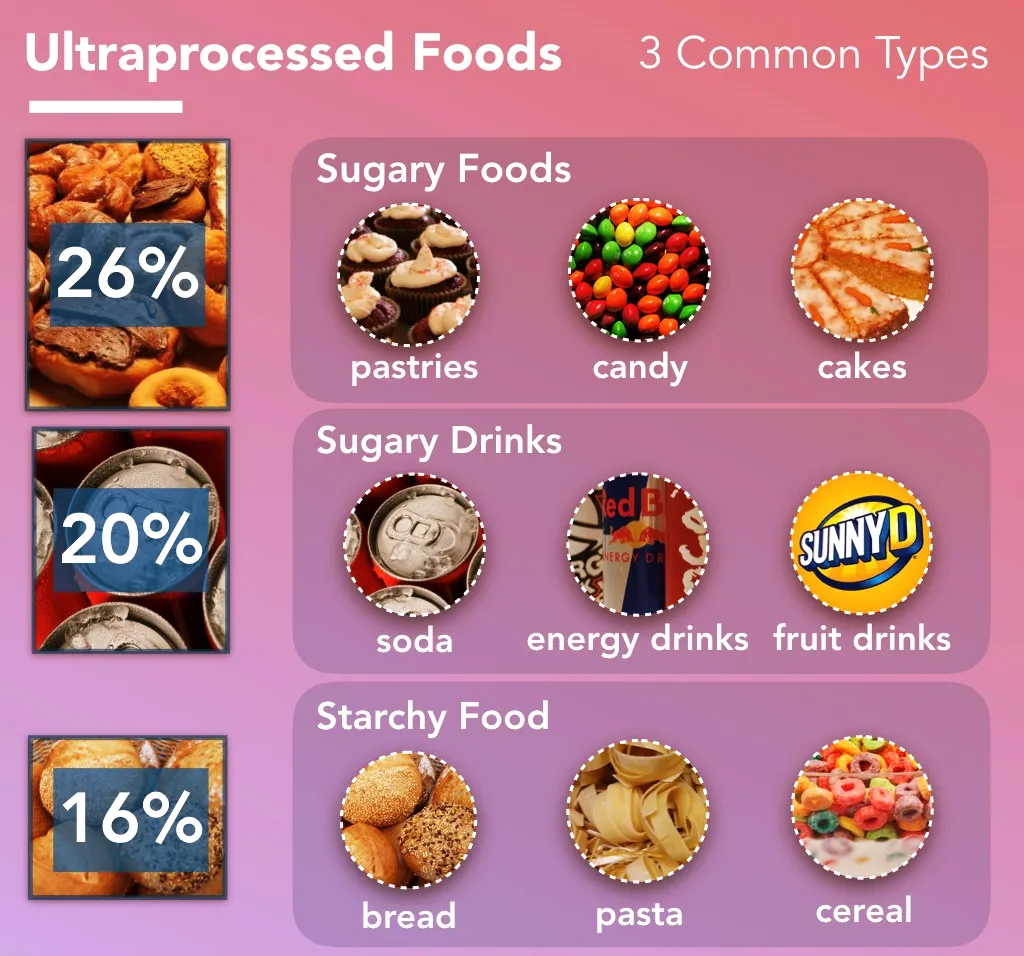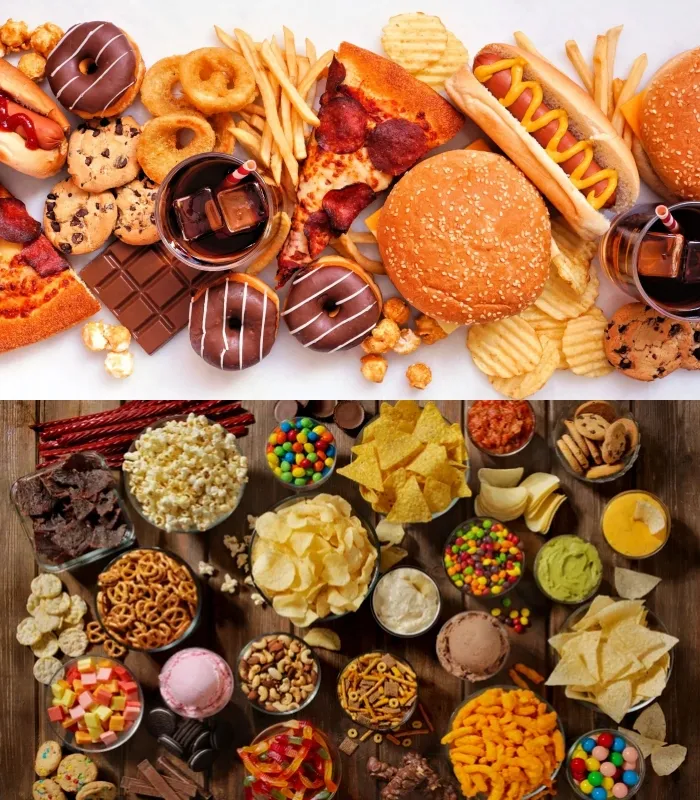
When you reach for that bag of nacho-flavored chips or frozen pizza, it’s no secret that you’re indulging in an unhealthy treat. But what about foods like granola bars, flavored yogurt, or string cheese? Surprisingly, many of these seemingly harmless snacks fall into the category of ultraprocessed foods, which have been the subject of increasing scrutiny in recent years. Here are five crucial things you need to know about ultraprocessed foods and their impact on your health.

1. Ultraprocessed Foods Are Linked to Poor Health Outcomes
Studies have shown a strong connection between consuming ultraprocessed foods and various health issues. Over 1,500 observational studies have consistently found that a diet high in ultraprocessed foods is linked to obesity, type 2 diabetes, heart disease, certain cancers, and even increased mortality rates. These foods are often packed with additives like flavor enhancers, colors, and thickeners, which can contribute to these negative health outcomes.
A recent study published in The BMJ journal revealed that eating ultraprocessed foods is associated with a 4% higher risk of death from any cause, including a 9% increased risk of neurodegenerative deaths. While these studies are observational and don’t prove causation, the evidence strongly suggests that cutting down on ultraprocessed foods could benefit your health.
2. Ultraprocessed Foods Can Cause Weight Gain
A groundbreaking randomized, controlled clinical trial has shown that ultraprocessed foods can directly cause weight gain. In this study, participants who ate a diet composed of 80% ultraprocessed foods consumed about 500 more calories per day than when they followed a minimally processed diet. This led to an average weight gain of 2 pounds in just two weeks. Conversely, participants lost 2 pounds on the minimally processed diet, along with showing lower markers of inflammation in their blood.
This study highlights the potential dangers of ultraprocessed foods, even when they appear healthy, like yogurt or whole wheat bread. The mechanisms driving this increased calorie intake are still being studied, but the findings underscore the importance of being mindful of what you eat.

3. Ultraprocessed Foods Are Ubiquitous
Ultraprocessed foods are everywhere, making them hard to avoid. They make up more than half of the average American adult’s diet, and for children, that percentage rises to 67%. Even foods that seem healthy, such as baked potato chips or a peanut butter and jelly sandwich, often fall into this category due to their industrial formulations and manufacturing techniques.
Given their prevalence, it’s essential to educate yourself about what qualifies as ultraprocessed and to make more informed choices when shopping for groceries or eating out.
4. Ultraprocessed Foods Are Cheap and Convenient
One of the main reasons ultraprocessed foods are so prevalent is that they’re both affordable and convenient. Preparing a diet of minimally processed foods can be 40% more expensive than a diet rich in ultraprocessed options. This cost difference, along with the added time required to prepare fresh meals, makes ultraprocessed foods an appealing choice for many people.
However, the long-term health costs associated with a diet high in ultraprocessed foods may far outweigh the short-term savings. Investing in whole, minimally processed foods whenever possible can lead to better health outcomes and potentially lower medical expenses down the line.

5. Not All Ultraprocessed Foods Are Created Equal
It’s important to note that not all ultraprocessed foods are inherently bad. Some, like whole wheat bread and yogurt, can provide essential nutrients. In the same study that showed weight gain from ultraprocessed foods, certain snacks did not increase caloric intake, suggesting that some ultraprocessed foods might be neutral or even beneficial in moderation.
Ongoing research aims to distinguish which ultraprocessed foods are harmful and which might be safer choices. Upcoming updates to the Dietary Guidelines from the US Department of Agriculture and the FDA may offer further guidance on navigating ultraprocessed foods in your diet.
Understanding the impact of ultraprocessed foods on your health is crucial in making informed dietary choices. While these foods are convenient and often tasty, their links to serious health issues make it important to limit their consumption. By being aware of these five key facts, you can better navigate your food choices and prioritize your health.
For a deeper dive into the topic, listen to the full episode of the Chasing Life podcast where experts discuss the effects of ultraprocessed foods on our diets.






